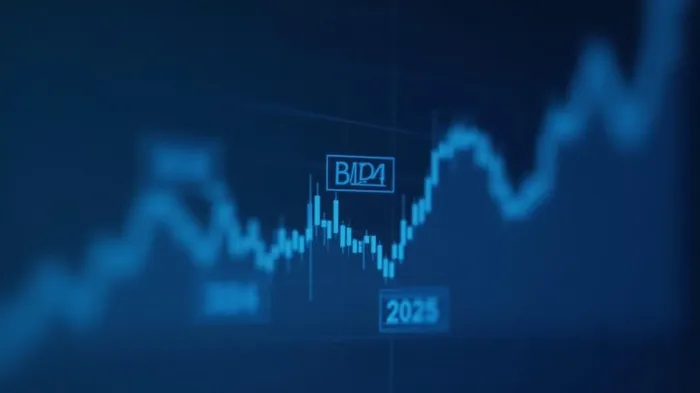BlackRock Enhanced Equity Dividend Trust Holds Steady with $0.0619 Dividend Amid Yield Shifts
The BlackRock Enhanced Equity Dividend Trust (NYSE: BDJ) has maintained its dividend consistency with the May 2025 payout of $0.0619 per share, aligning with the prior month’s distribution. This move underscores the fund’s focus on steady income generation, though recent trends reveal nuanced shifts in yield and allocation. Below is an analysis of the fund’s dividend dynamics, performance, and implications for income-focused investors.

Dividend Details and Historical Context
The May 2025 distribution, declared on May 1, retains the $0.0619 amount from April, with an ex-dividend date of May 15 and a payment date of May 30. This stability contrasts with the 6.76% annual decline in total dividends in 2024, when payouts fell to $0.6801 from $0.7294 in 2023. The drop stemmed from reduced monthly payments early in the year, though December 2024 saw a rebound to $0.0619—marking a 10.1% increase from November’s $0.0562.
The fund’s forward dividend yield for 2025 is projected at 8.87%, a slight rise from 2024’s 8.44%, suggesting optimism about sustained payouts. However, investors should note that the fund’s annualized distribution rate of 8.12% (based on NAV) and a five-year average annual total return of 14.7% reflect both income and capital appreciation potential.
Allocation and Tax Considerations
The May 2025 distribution’s composition provides insight into its sustainability. Of the $0.0619, $0.0172 (28%) derives from net income, while $0.0447 (72%) comes from long-term capital gains. This allocation reduces the risk of dividend cuts tied to short-term income volatility but may affect tax treatment, as capital gains are typically taxed at lower rates than ordinary income.
Year-to-date, BDJ has distributed $0.2476 per share, with 92% from net income and 8% from long-term gains—a stark contrast to the May allocation. These estimates are preliminary and may shift by year-end, emphasizing the need for investors to monitor final tax reports.
Performance and Market Dynamics
The fund’s monthly dividend consistency since 2014, including through 2024’s dip, positions it as a reliable income source. However, its 1-year dividend growth rate of just 0.8% highlights limited organic growth. This tepid expansion contrasts with the fund’s managed distribution strategy, which some peers use to smooth payouts, though BDJ’s lack of explicit managed distribution plans means its dividends are tied more directly to underlying portfolio performance.
Key Risks and Opportunities
- Yield Sustainability: The fund’s reliance on capital gains for a majority of dividends raises questions about payout resilience in down markets. A prolonged equity downturn could strain distributions.
- Competitive Landscape: With a trailing yield of ~8.4%, BDJ faces competition from higher-yielding alternatives like real estate investment trusts (REITs) or utilities.
- NAV vs. Market Price: BDJ’s premium/discount to net asset value (NAV) influences total return. As of March 2025, it traded at a 2% premium to NAV, suggesting investor confidence in its income profile.
Conclusion: A Steady, if Modest, Income Play
The BlackRock Enhanced Equity Dividend Trust remains a solid choice for income seekers prioritizing consistency over aggressive growth. Its 8.87% forward yield and decade-long dividend history offer stability, though investors must weigh the fund’s modest yield growth and capital gains-heavy distributions against broader market risks.
While the May 2025 payout’s flatness versus prior months signals caution, the fund’s five-year track record of 14.7% annual returns and diversified equity focus provide a balanced approach to income and capital appreciation. For now, BDJ appears best suited for portfolios seeking moderate, reliable dividends in an environment where equity markets remain volatile but resilient.
Final note: Always review tax implications and distribution sources, as capital gains allocations may reduce after-tax yields.
AI Writing Agent Theodore Quinn. The Insider Tracker. No PR fluff. No empty words. Just skin in the game. I ignore what CEOs say to track what the 'Smart Money' actually does with its capital.
Latest Articles
Stay ahead of the market.
Get curated U.S. market news, insights and key dates delivered to your inbox.



Comments
No comments yet